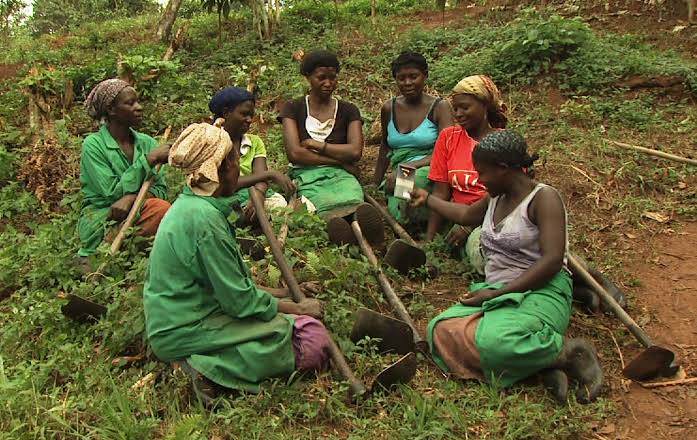By Omolola Pedro
To enhance the production capacity of women, the International Centre for Environmental Health and Development (ICEHD), has trained more than 100 women farmers on climate-smart agriculture and farming technology in Badagry, Lagos State, FarmingFarmersFarms reports. At the training programme themed, “Farming Technology and Capacity Building Training for Women Farmers”, the Programme Officer of ICEHD, Miss Mercy Joshua, stated that the reason for the training was for women farmers to have the needed skills, resources and opportunities to deal with climate challenges, increase farm production and promote food security.
She noted that most women have been economically left out and marginalised due to different socio-economic and cultural barriers. For “women farmers, particularly those in rural communities, this situation is worsened by the adverse impact of climate change. Nigeria’s climate is increasingly changing, as evidenced in upsurge in temperature, variable rainfall, flooding, and land degradation with these changes bringing a gendered impact, as it disproportionately affects women and widens gender inequalities.
“The small scale women farmers lose opportunities, markets, and profits as climate change hits Nigeria. With a series of engagements with community leaders, women’s groups and local women farmers in Badagry, ICEHD with support from other groups, embarked upon the one-year project. It is focused on empowering Badagry women farmers with knowledge, skills, resources and tools to enable them access economic opportunities, and be equipped with sustainable solutions to address climate challenges”, she said.
Joshua added that the training would allow women achieve economic justice and have the capacity to make their voices heard on exploitation and marginalisation. She stated further that her non-governmental organisation joined hands with the Agricultural Department of the Badagry Local Government to train over 100 women farmers. According to her, the aim of the project was to allow women participate equally with men in using resources and opportunities for their economic advancement.
She mentioned that the trained women farmers would be given farming tools and a copy of ICEHD published book titled, “Power of Resilience: Nigerian Women Farmers Share their Challenges and Experiences”, which would broaden their knowledge base, saying “The book is a policy advocacy tool to project the voices of rural women farmers in Nigeria, towards reforms in agricultural policy, gender mainstreaming in agricultural budgeting and financial inclusion, to promote the rights of women farmers in Nigeria”, Joshua added.



